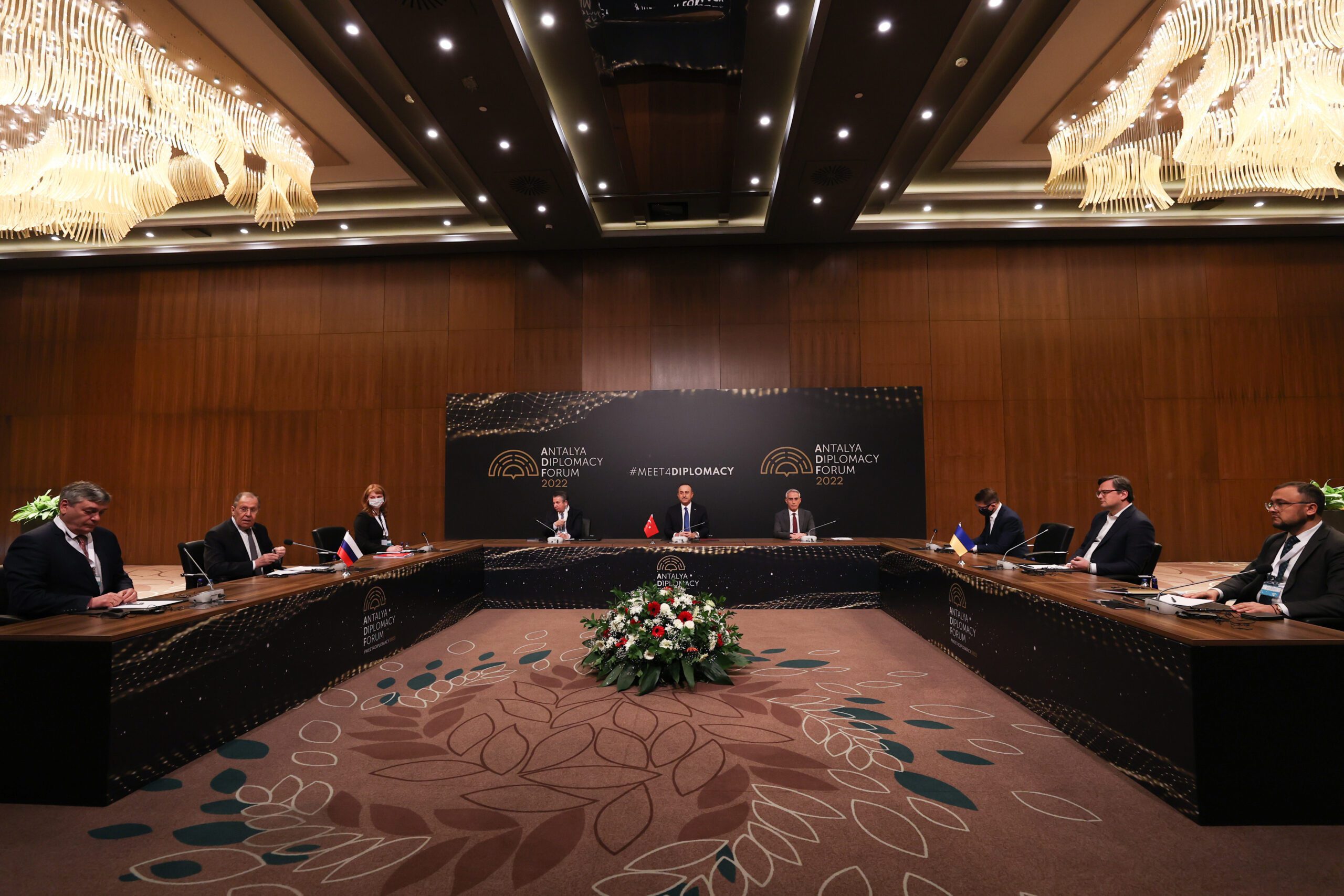Ukraine-Russia Negotiations in Turkey on 10 March: What the Opposing Sides Demand

- Negotiations between the Foreign Ministers of Ukraine and Russia took place in Antalya with the mediation of the Turkish Ministry of Foreign Affairs.
- Discussed were questions relating to the organization of humanitarian corridors and a ceasefire.
- The negotiations were unsuccessful. The talks may resume if the occupiers stop repeating propaganda and lies.
On 10 March 2022, a tripartite meeting of the heads of the Ministries of Foreign Affairs of Ukraine, Russia and Turkey took place in Antalya, in the south of Turkey. The main points of the negotiations are the safeguarding of humanitarian corridors, a ceasefire, and the withdrawal of Russian troops from Ukraine. The discussions lasted an hour and a half, but no progress was made in ending the war.
Zaborona reports on the results of the first foreign ministerial-level talks between Ukraine and the aggressor.
Kuleba and Lavrov talk on March 10: results
The main points from the briefing by Dmytro Kuleba, Ukraine’s Minister for Foreign Affairs:
- Ukraine proposed a humanitarian corridor to and from Mariupol, as well as a ceasefire to last at least a day, to address civilians’ humanitarian needs;
- there has been no progress on the ceasefire, no ceasefire agreement has been reached;
- Ukraine cannot stop the war if the aggressor country does not want to do so. Russia is ready to discuss a ceasefire if Ukraine agrees to comply with Putin’s demands;
- Ukraine has not given up, is not giving up, and will not give up. Ukraine is looking for democratic solutions, but so far there are none;
- Lavrov raised the issue of nuclear safety. There is only one solution – the withdrawal of Russian troops from Ukrainian nuclear power plants;
- speculation that Ukraine is allegedly developing nuclear weapons is a lie;
- NATO is not ready to ensure Ukraine’s security;
- the format of negotiations in Turkey may be continued if the Russian side is ready for a substantive conversation rather than the repetition of propagandistic lines.
After the talks, Russian Foreign Minister Sergei Lavrov continued to spin the Kremlin’s line of propaganda and said fantastical things, such as:
- Russia’s “special military operation” is going according to plan;
- Russia’s main demand is Ukraine’s neutral status and security guarantees;
- the bombing of the children’s hospital in Mariupol was a conscious and deliberate decision (it was allegedly a base of the Azov Regiment and other radicals, and there were no children, women in labor, or doctors present);
- reports from Mariupol showing wounded women after an air strike on a children’s hospital are a manipulation because “no attention was paid to the other side”;
- only NATO threatens nuclear war, not Russia;
- Russia will emerge from the crisis with a sound conscious, it will have no illusions about cooperation with the West;
- Putin does not refuse to meet directly with Zelensky, and someday such a need will arise;
- Russia is ready for negotiations at the highest level if they have “added value”;
- Russia has no plans to attack other countries, and Russia did not attack Ukraine.
Earlier, Zaborona reported on the death of Ukrainian banker Denys Kirieiev, who took part in the first talks between the Ukrainian and Russian delegations in Belarus.

